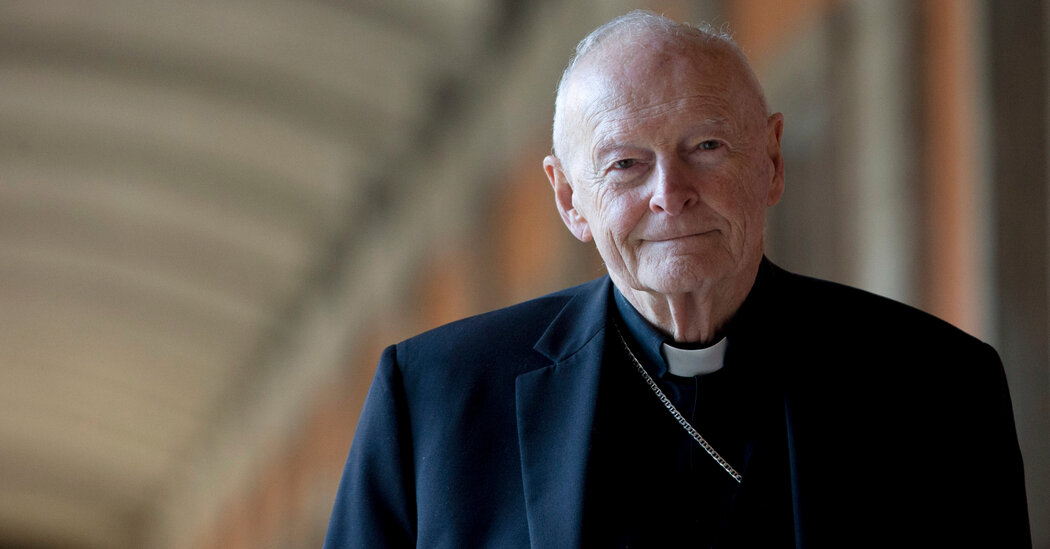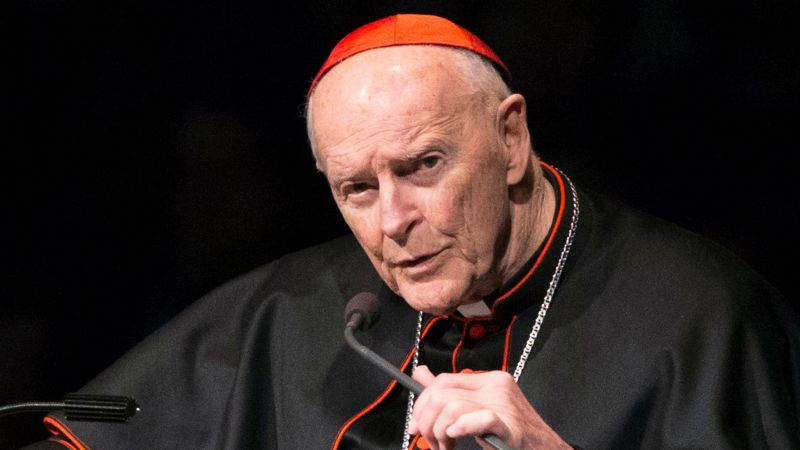The death of Theodore McCarrick, the former Archbishop of Washington and the only U.S. cardinal to be defrocked due to credible allegations of sexual abuse, marks a pivotal moment in the ongoing discourse surrounding accountability within the Catholic Church. His life and ministry, spanning over six decades, have left an indelible mark on both the church and its followers, raising urgent questions about the implications of clerical power and the systemic failures that allowed such misconduct to persist for so long.
A Brief Overview of McCarrick’s Career
Theodore McCarrick was born on July 7, 1929, in New York City. He was ordained a priest in 1958 and quickly rose through the ranks of the Catholic Church. His appointments included serving as the Archbishop of Newark from 1986 to 2000, followed by his appointment as Archbishop of Washington, D.C., and his elevation to cardinal in 2001. He was known for his strong advocacy on social issues, including his work on behalf of humanitarian causes, and was regarded as a skilled fundraiser and a savvy operator within church hierarchies.
Despite his public successes, behind the scenes, serious allegations regarding his sexual misconduct with seminarians and minors began to emerge. In 2018, following an exhaustive investigation, a bombshell report by The New York Times revealed that church officials had known for decades about accusations against McCarrick. This was compounded by testimony from numerous victims, including one who alleged that abuse had begun when he was only eleven years old.
The Scandal Unfolds
In June 2018, following an unexpected announcement from the Vatican, McCarrick resigned from the College of Cardinals. This was later followed by his definitive removal from the priesthood in 2019 after a church trial found him guilty of sexually abusing minors—a historic and unprecedented decision that rocked the Catholic community.
The pivotal revelations concerning McCarrick’s abuse cast a long shadow over the church’s governance and its handling of sexual abuse cases. The 2019 Vatican report that documented McCarrick’s sexual misconduct detailed a pattern of abuse that spanned decades while highlighting a profound failure of leadership within the church. This report suggested that popes John Paul II and Benedict XVI had overlooked prior accusations against McCarrick, believing his denials despite overwhelming evidence.
According to the report, by 2000, the Vatican was already aware of accusations involving McCarrick sharing a bed with young men and was implicated in a broader culture of cover-ups by church leaders. This revelation prompted further scrutiny into how Catholic leaders handle such accusations and fostered a mistrust among congregants regarding church authority.
The Church’s Response and Aftermath
The fallout from McCarrick’s actions and the church’s attempts at accountability sent tremors throughout the Vatican. It galvanized both clergy and laity to demand transparency and change within the institution. Cardinals, bishops, and parishioners have spoken out about the systemic abuse and the lack of accountability at higher levels, emphasizing the need for a thorough investigation into the ecclesiastical procedures that allowed McCarrick to rise to power.
In 2021, a pastoral letter issued by Cardinal Robert McElroy of San Diego reaffirmed the church’s commitment to protecting victims and emphasized the necessity of eradicating a culture of silence and complicity that enables abuse. This has represented a significant shift within the church, where previously, victims often faced skepticism or were marginalized.
Moreover, McCarrick’s case has prompted broader discussions regarding sexual abuse not only in the Catholic Church but in institutions worldwide. The repeated cycles of abuse, enablers, and the lack of action by authorities has reignited conversations on reform and accountability within religious and secular institutions alike.
The Legacy of Theodore McCarrick
As the news of McCarrick’s death is reported, the remembrance of his legacy remains contentious. While he was once celebrated for his leadership and philanthropy, his downfall serves as a tragic reminder of the complexities inherent in institutional power dynamics—particularly in contexts where accountability mechanisms are feeble.

His story brings to the forefront the ongoing plight of abuse survivors within the church. Many victims who endured harm at the hands of McCarrick or others like him may feel that McCarrick’s death offers little closure, with the church still grappling with how to address past transgressions adequately and fairly.
Victims have often described the profound emotional and psychological toll that such abuse takes, with many advocating for legislative changes and reforms aimed at improving victim support systems. Their voices remain crucial as they continue to seek justice, healing, and awareness for the systemic issues that perpetuate abuse.
Moving Forward: A Call for Change
In light of the deep-rooted issues exemplified by Theodore McCarrick’s case, there is an urgent need for the Catholic Church to reevaluate its stance on safeguarding and allegations of misconduct. This necessitates a cultural shift, where bishops and priests are urged to listen actively to victims and engage transparently with accusations, fostering an environment of accountability.
The death of Theodore McCarrick not only marks the end of an era for one individual but also signals the enduring impact his actions had on the Catholic community and the ongoing need for reform and healing. As the church strives for redemption, it must acknowledge the fraught history of its leaders and bolster paths to ensure transparency and justice for victims.
It is essential that systemic changes be established to ensure that the church’s leadership prioritizes the well-being of congregants over institutional reputation. By prioritizing the voices of survivors and enacting meaningful reform, the Catholic Church can hope to rebuild its credibility and restore the faith of many who feel betrayed by its past.
“In seeking justice for those who suffered abuses, we can create a better church, one that is free from the shadows of the past.”
As the church grapples with the legacy of Theodore McCarrick, the hope is for a future that embodies accountability, compassion, and resolve as it combats the challenges presented by institutional failures.
This legacy can serve as a powerful impetus for change, reconciliation, and a renewed commitment to ethical leadership within the church.
Conclusion
The passing of Theodore McCarrick introduces another chapter in the ongoing saga of clerical abuse within the Catholic Church. This case serves as a rallying call for comprehensive reforms that can protect the vulnerable, support abuse survivors, and establish structures that ensure the safety and sanctity of all clergy and laypersons under its care. The ordeal has been profound, and as the church looks to the future, much work remains to be done to heal these wounds.
“We must remember that every shadow has a light, and it is in that light that we can forge a new path for our communities.”
The road ahead involves engaging with the voices of those affected, addressing systemic failures, and working collectively towards a reformed and revitalized Catholic Church.

